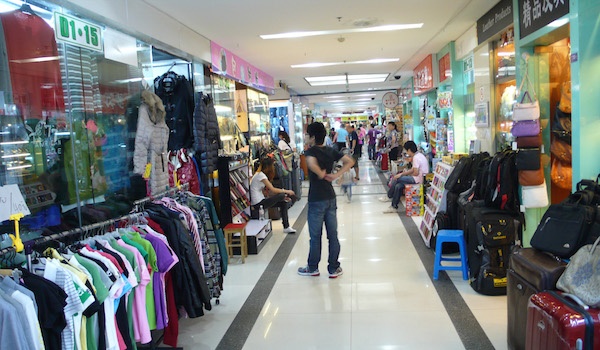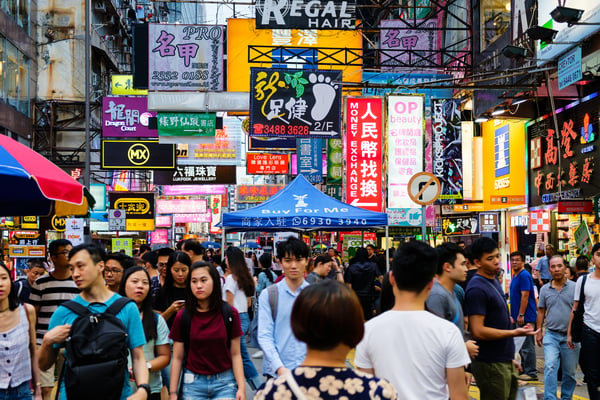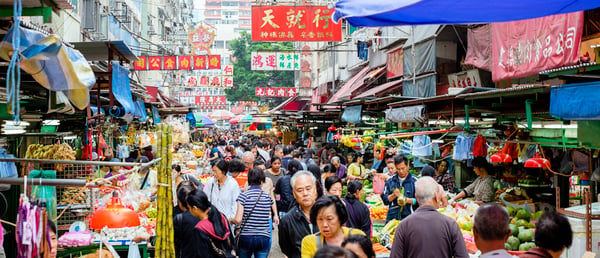Negotiating is an art in China that not everyone is able to master, and it is even more challenging when Chinese is not your native language. Even though nowadays most Chinese people purchase online, there are still some famous places in China where the only way to purchase something at an affordable price is to haggle hard. These places, also known as “fake markets” (because of their counterfeit products), are becoming more and more popular among tourists because it has become a fascinating activity for those who want to immerse themselves in the Chinese culture. Some places well-known for their bargaining experience are the Silk Market in Beijing, the AP Plaza in Shanghai, the Garment Wholesale Center in Guangzhou, and the Luohu Commercial Center in Shenzhen.

It is possible to use the English language to negotiate the price, but it is a huge advantage to master Chinese key sentences. If they see you have mastered some Mandarin, they will probably think “Ok, this “laowai” speaks Chinese, I’d better not fool him too much”. So here are the five sentences you must learn when bargaining in Chinese infamous counterfeit markets:
1- How much does this one cost?
这个多少钱?
zhè gè duō shǎo qián ?
The shopkeeper probably won’t welcome you with a 你好 nǐ hǎo when you enter a store, but don’t be offended, this is part of the Chinese culture. In China, we don’t say nǐ hǎo as often as “hello” in English. So, enter the shop, and look directly for the products you are interested in. Once you find the one you want, don’t bother using an ice-breaker to start the conversation; ask the shopkeeper directly for the price: 这个多少钱?zhè gè duō shǎo qián ?And wait for him/her, to tell you an obviously, absolutely-too-expensive price.
Note: In Chinese, there are two ways to says “yuan”. The first one is “块 kuài”, the second one is “元 yuán”. “块 kuài” is more familiar, while “元 yuán” is more formal, but you can use both as you want. If you are scared not to understand the price in Chinese (some locals may speak too fast), try to read our article on how to say numbers in Chinese.
2- It’s too expensive
太贵了
tài guì le
There is a 99% chance that retailers will give you an exaggerated price, for example- telling you that a 10-yuan-fake Gucci watch cost 1000. Even though you were expecting him/her to give you a too-high price, pretend to be really offended and answer in a really dramatic way: 太贵了! tài guì le !
Finally, follow your acting scene by giving the price that you want. Don’t hesitate to give a really low price, because the shopkeeper will obviously want to find a happy medium between his high price and your low one. To keep our example of the 1000-yuan-fake Gucci watch, let’s pretend you ask for 50 yuan (五十元 wǔshí yuán).

3- A bit cheaper
便宜一点
piányí yīdiǎn
It is time for you now to enter a battle that can sometimes feel endless. Finding the happy medium is usually not easy since the vendor will try his best to earn a big margin. Don’t feel guilty to ask for cheaper and cheaper. Shopkeepers will never sell at a loss. So after you asked them for 50 yuan, they would probably retort “不行!Bùxíng” (No!), and change their 1000 into 700. As you can see, there is still a huge gap between 50 and 700. So in order to ask them to lower the price, use the famous sentence 便宜一点 piányí yīdiǎn.
4- This product is cheaper in that shop over there
这个产品在那边的商店比较便宜
zhège chǎnpǐn zài nà biān de shāngdiàn bǐjiào piányí
You keep haggling but the price is still too high for you? It is time for you to compare the vendor’s shop to his competitors. In big Chinese counterfeit markets, it is actually really easy to find approximately the same things in different stalls. Don’t hesitate to pretend you’ve been to the other shops already, and tell them you know the price and know that is cheaper. This sentence may seem long but is really useful:
这个产品在那边的商店比较便宜 zhège chǎnpǐn zài nà biān de shāngdiàn bǐjiào piányí
这个 zhège This
产品 chǎnpǐn product
在那边的商店 zài nàbiān de shāngdiàn in that shop over there
比较便宜 bǐjiào piányí cheaper
5- It’s ok, forget it, bye-bye
没关系 méiguānxì, 那算了nàsuànle, 拜拜 bàibài
If this bargaining experience leads you to nowhere, it’s time for you to use your best acting ever by pretending not to be interested in the product, and just leave the shop (in a dramatic way if possible), and make them feel like it doesn’t matter to you anyway: “没关系 méiguānxì,那算了nàsuànle,拜拜 bàibài.
Hopefully, something will happen like in famous drama movies, with the shopkeeper begging you: “NO! WAIT! … What about 120?”
If you can go from 1000 to 120 yuan, consider yourself a good master of negotiation. It is actually possible to go lower, but let’s appreciate these local shopkeepers that have to bargain every day to earn their living. In this situation, 120 is a good win-win situation where both sides can be satisfied (even though some shopkeepers will still pretend to be upset by the final price).

Do you also have former experiences with bargaining in China? Don’t hesitate to share your story with the TutorABC Chinese community in the comments below.
